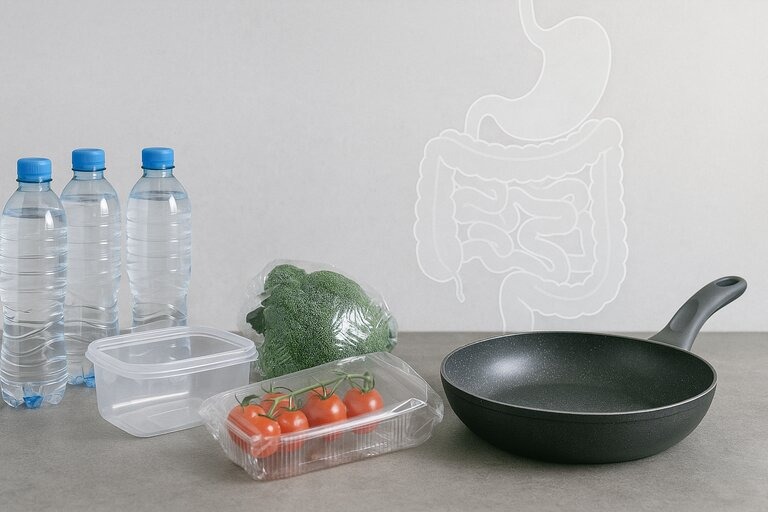
Plastics and Your Gut: Understanding the Risks
In our fast-paced, convenience-driven world, plastic is everywhere. From the water bottles we sip from to the pans we cook with, the ubiquity of plastic can be alarming, specifically when it comes to gut health.
According to a gastroenterologist's insights shared in a recent video, there are five plastics to watch out for, as they may contribute to microplastics in our bodies that can disrupt our health.
In 5 Plastics I Avoid for My Own Gut Health as a Gastroenterologist, the discussion dives into the critical role plastics play in gut health, exploring insights that sparked deeper analysis on our end.
1. The Hidden Threat of Plastic Water Bottles
Plastic water bottles may seem harmless, but they can leach microplastics, especially after being exposed to heat. This suggests we should think twice about leaving our bottles in a hot car or under sunlight.
When possible, opt for glass or stainless steel containers instead. Not only do they prevent microplastics, but they are also safer for our health and the planet.
2. Choosing Safe Kitchen Tools
Plastic cutting boards often harbor harmful chemicals and can release microplastics into the food we prepare. It’s recommended to replace these with wooden or glass boards which are not only better for health but easier to sanitize. This small switch can help safeguard your family from invisible toxins that can affect gut health.
3. Beware of Plastic Utensils
Those convenient plastic utensils, especially the black ones, often contain harmful chemicals. Consider transitioning to stainless steel or wooden utensils. This not only enhances the meal experience by improving the flavor integrity of your food but also aligns with a healthier lifestyle.
4. The Dangers of Non-Stick Cookware
Many non-stick pans are made with chemicals known as PFAS, often referred to as forever chemicals because they do not break down in the environment.
Exposure to these substances is linked to hormonal disruptions and other health issues.
Opt for alternatives such as cast iron, stainless steel, or ceramic pans. They may require more care, but the benefits are substantial for both your health and your meals.
5. Ultraprocessed Foods: The Biggest Culprit
The most significant contributor to microplastics in our bodies comes from ultraprocessed foods. The manufacturing process often involves plastics that can make their way into our meals.
By focusing on whole foods—fruits, vegetables, grains, and lean proteins—we can dramatically reduce our plastic intake while boosting our overall nutrition.
A Step Towards Better Health
Switching away from plastic and ultraprocessed foods might seem daunting, but it is essential for your gut health.
Small steps, like choosing glass containers, opting for stainless steel utensils, and preparing more meals at home with whole foods can lead to significant changes in your overall well-being.
Take Action for Digestive Well-being
For those in the Sacramento area who care about their health and the environment, the journey towards less plastic reliance doesn’t have to be overwhelming.
Each mindful choice contributes to a healthier you and a healthier planet. Consider linking up with local health events or groups focused on sustainable living and nutrition.
Continue your journey toward balance and wellness—discover more articles in Holistic Healing or return to the Sacramento Living Well homepage for more community stories.
---
Authored by the Sacramento Living Well Editorial Team — a publication of DSA Digital Media, dedicated to highlighting wellness, local living, and inspiring community stories throughout Greater Sacramento.
 Add Row
Add Row  Add
Add 





Write A Comment